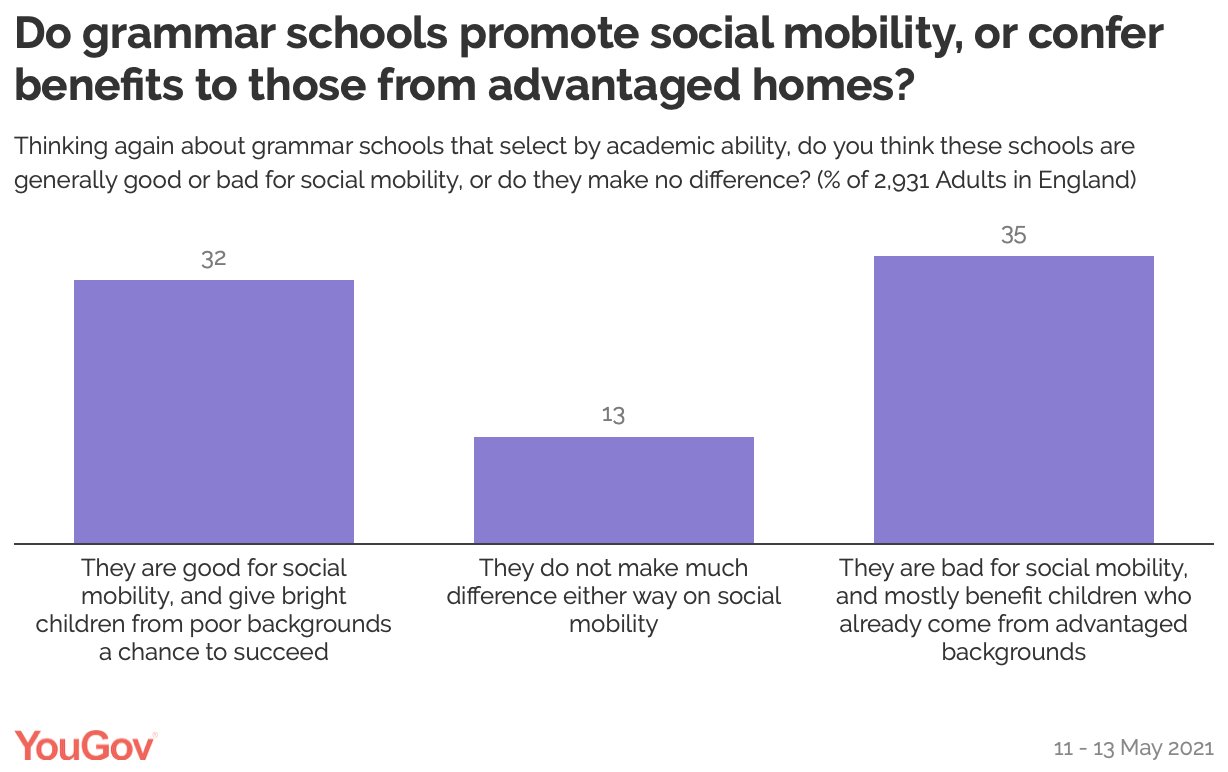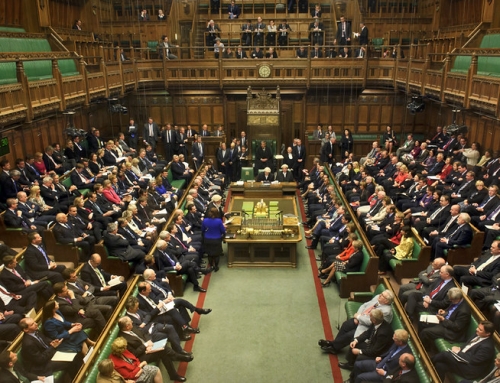YouGov recently polled the public on their attitudes to grammar schools, with support for selection apparently falling since they last asked this question. In 2017 a YouGov poll showed 31% of the public wanted more grammar schools, while this latest poll (May 2021) showed just 27% of the public want to expand academic selection. The survey also revealed that 30% of the public want to ditch selection tests and open grammar schools to all local pupils.
The survey also asked whether the public believe grammar schools are good for social mobility or mainly confer benefits to children from advantaged homes. The public was closely divided, but a small majority thought that grammar schools damaged social mobility.
Tom Fryer, a Manchester Institute of Education PhD student, wrote an interesting Twitter thread on what this survey shows, with opinion varying between different social groups.
While most Labour voters see grammar schools as bad for social mobility, almost 50% of Conservatives hold the opposite opinion pic.twitter.com/3HmsQNWrSo
— Tom Fryer (@TomFryer4) June 8, 2021
There are also huge differences between age groups
Young people are much more likely to say grammar schools are bad for social mobility
Only the 65+ age group comes out strongly favour of the view that grammars benefit social mobility pic.twitter.com/CE26zdp0oY
— Tom Fryer (@TomFryer4) June 8, 2021
Tom Fryer said, “Also, the phrasing of the question might skew people towards ‘good for mobility’, which is explained as ‘giv(ing) bright children from poor backgrounds a chance to succeed.’ Grammars do help SOME children from poor backgrounds. But, this doesn’t mean they’re good for social mobility. By defining ‘good for mobility’ in this way, respondents are pushed away from considering the OVERALL impact of grammar schools on social mobility. This means that the public could be more sceptical of grammar schools’ contribution to social mobility than the YouGov data suggests.”
It’s interesting to wonder what the survey would have shown with a question asking about secondary modern schools rather than grammar schools – children in selective areas don’t all go to grammar schools, but the question ignores the majority. It’s also fair to say that ‘social mobility’ is a complicated subject, there is an assumption that it is only upward, with no suggestion that downward social mobility is ever needed to make space at the ‘top!’ But it is interesting to see that the general public don’t wholeheartedly buy into the myth that grammar schools boost poor children’s life chances. This myth has been well and truly busted by a great many studies, evidence shows that few disadvantaged pupils access grammar schools, and there is damage to social cohesion while results are no better than in comprehensive schools.






